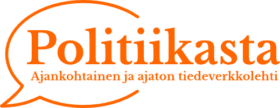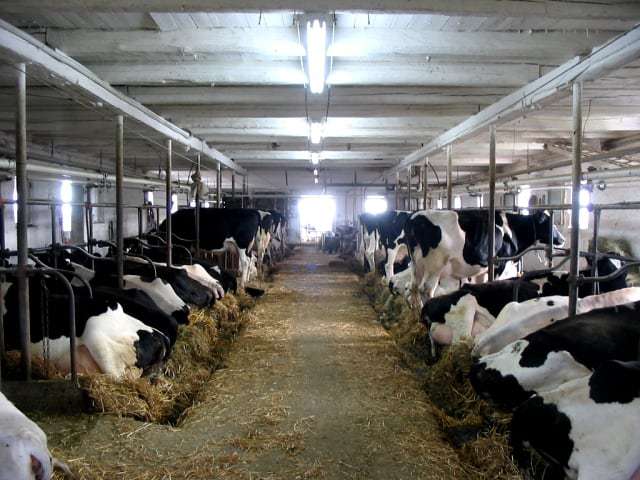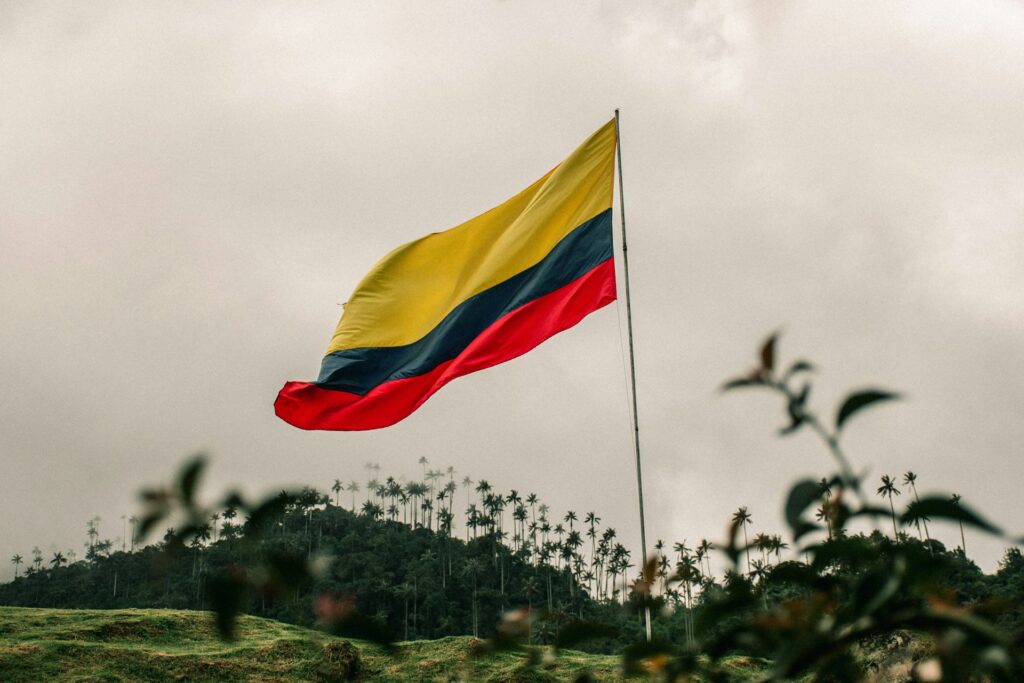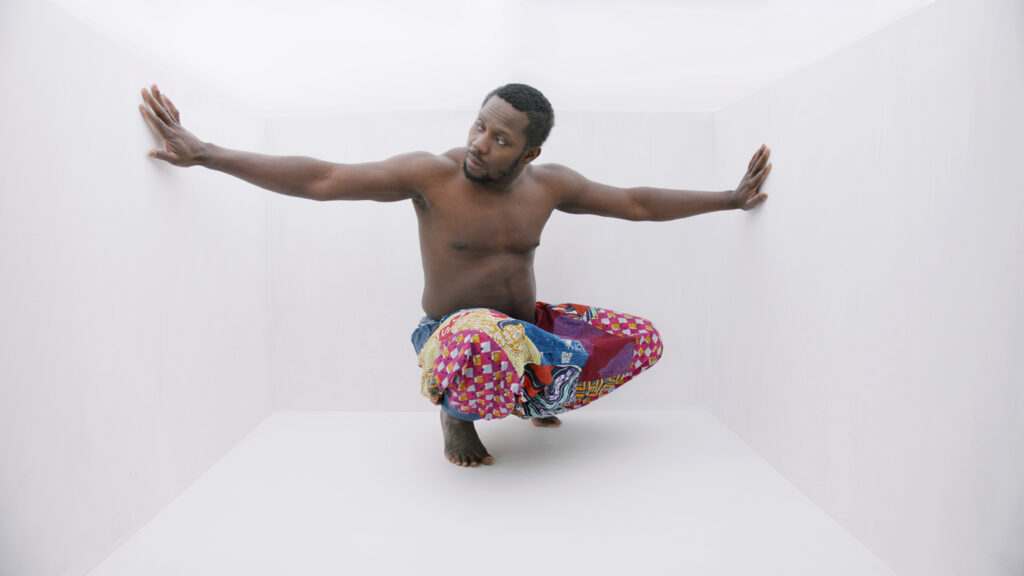Milk used to be one of the mundane things in our life that we took for granted and barely thought about. Now raw milk is the platform of a political struggle. This is dangerous because it directly concerns what we hold perhaps the most sacred: our health.
From milk to raw milk
Health: we drink to it, we fear losing it, and yet we are still constantly trying to achieve it. One might wonder who is lucky enough not to be concerned about their health, as our culture is saturated with instructions as to how to live a healthy life. Simultaneously the news is plagued with stories of incurable disease and how individuals are sicker than ever before.
Health becomes the most important thing because without it we cease to exist. Without a supply of healthy living bodies, the stasis of the state will be that of death.
Prior to the late nineteenth century all milk was raw. This was until Louis Pasteur found that by heating liquids in low temperatures it was possible to kill harmful bacteria without having to completely sterilize the liquids. The distinction between raw milk and pasteurized milk was born.
A raw milk rebellion
The revival of raw milk in recent years has sparked a discussion on whether individuals have the power to decide for themselves what is healthy and in turn what is dangerous for health. Simultaneously the role of the government as ‘protector’ of health is questioned.
In the United States the ‘Raw Milk Debate’ is hot and the Internet has become a battlefield with activist websites multiplying to spread the word of the health benefits of raw milk. The government, in turn, is devoting sections of its websites, such as the Federal Drug Administration (FDA) website, to educate and warn citizens of the dangers of raw milk.
What began as a movement has now turned into a full-on Raw Milk Rebellion. Nothing short of a verbal milk war is being waged with both parties having everything to lose when it comes to the power of deciding who can determine what is safe and what is dangerous for health.
There is also a legal aspect to the issue of unpasteurized milk. Approximately 15 states have banned the sale of raw milk and 35 states allow it in some form.
The penalties for selling or sharing raw milk across state lines are quite severe and have subsequently caused the Federal Drug Administration (FDA) grounds to intervene. The US government has conducted raids on raw milk farmers and sellers, where fully armed SWAT teams come and confiscate dairy products and ban farmers from producing any more unpasteurized dairy products. Even jail time is possible for those who are caught selling or distributing raw milk across state lines.[i]
The legal aspect of raw milk may be surprising to some and absurd to others. What does the US government have against raw milk?
The birth of the dairy industry
To answer this question one must consider the nature of the time when pasteurization was first conceived. In the latter half of the nineteenth century raw milk was actually the leading cause of infant mortality in the United States, with the consumption of infected raw milk being linked to typhoid fever, tuberculosis, scarlet fever and diphtheria (Ward & Warren 2006, 25).
Interestingly enough the turning point when raw milk started to become diseased coincides with the birth of the dairy, which in turn was directly linked to industrialization. The dairy industry was born when rapid urbanization took place and cities needed more milk.
Prior to the birth of the dairy Americans relied on either their own dairy cow or a neighbouring cow to obtain their milk. Outside of the family there were little to no sales of milk. As a result of the problems that raw milk was causing, the US adopted pasteurization nationwide in the early twentieth century. By 1940 pasteurization of milk was not an exception but the norm(Ward & Warren 2006, 25).
Raw milk as the saviour of health
Raw milk activists are not unaware of the history surrounding raw milk. They believe strongly that raw milk is inherently healthy. It is true that milk coming from the cow is indeed safe and beneficial to health. Problems arise in the production of milk. Activists rely on ‘cow shares’(an instance where a group of people can essentially buy a cow and share its milk) or from buying locally produced raw milk from local farms.
There is a strong animosity towards ‘big business’ within the movement, which acts as an important component in the belief system of the activists. They are determined to return to pure and natural food items. With the array of health problems that individuals are encountering, which medicine has no solution for, the activists are turning to alternative ways to secure their health.
In a nation where people are getting sicker and sicker, the claim of the FDA to be the ‘protector of health’ is one void of results. Raw milk activists reject the role of the government as the protector of health with one raw milk activist, for example, proclaiming:
“PLEASE DO NOT TAKE MY GOD GIVEN RIGHT TO OWN A COWSHARE AND DRINK RAW MILK AWAY FROM ME. RAW MILK IS GOOD FOOD. RAW MILK IS EXCELLENT FOR HEALTH. I NEED RAW MILK IN ORDER TO STAY HEALTHY AND FEEL GOOD”.
The decline of the authority of traditional medicine is accompanied with the loss of power of the government to dictate what is healthy and what is not. The government’s role in determining what is safe and dangerous for health is completely undermined by the beliefs of raw milk activists. As another activist asserts, laws are ‘secondary’ when it comes to raw milk.
The biopolitics of raw milk
The raw milk struggle is in its essence biopolitically charged. The FDA is exercising biopower in its guidelines and the raw milk activists are, in turn, resisting biopower in their testimonials and rhetoric.
The biopolitics of raw milk really begins to take shape in light of Michel Foucault’s notions of the health of the population becoming a concern of the state in the eighteenth and nineteenth centuries.
According to Foucault, an apparatus of security takes shape with concerns directly linked to the health of the individual. Consequently, maintaining and fostering the health of the individual becomes an objective of the state (Foucault 1978, 139–141). This is due to the disarticulation of power in the eighteenth century as Foucault has succinctly articulated: ‘…the power to take life or let live was replaced by a power to foster life or disallow it to the point of death’ (Foucault 1978, 138). With this power came new forms of governing, which place the human body at the center of interest in power relations.
Death was recognized to be the limit of power (Foucault 1978, 139). Henceforth, the health of the population was now a concern of the state, not the individual. The state started to govern with an interest in maintaining life, and the health of its citizens became a primary concern.
With the recognition of death being the limit of power came new forms of governing. Foucault maintains that they emerged in the form of ‘governmentality’, targeting the population as a whole, abiding to the form of knowledge that is political economy and relying on the apparatuses of security as its political technique (Foucault 2007, 144).
Life was now to be ‘managed’ by the state and ‘…hence there was an explosion of numerous and diverse techniques for achieving the subjugation of bodies and the control of populations, marking the beginning of an era of “bio-power”’ (Foucault 1978, 139–140). As a result our knowledge concerning health and medicine was normalized, and the ways in which we achieve health come through official channels and state-imposed lifestyles.
From the era of biopower to the era of healthism
If we consider Foucault’s notions of biopower in the neoliberal age, it is evident that we are living in an era where human life is constructed around the notions of health and being healthy.
In 1980 Richard Crawford published his work Healthism and the medicalization of everyday life. Crawford argued that as a result of the new health consciousness and the rise of health movements, the problem of health is continually construed as a problem of the individual.
In his book Powers of Freedom: reframing political thought, Nikolas Rose draws from Foucault’s notions of governmentality and employs the term ‘ethico-politics’ which concerns ‘itself with the self-techniques necessary for responsible self-government and the relations between one’s obligation to oneself and one’s obligations to others’ (Rose 1999, 188). Rose identifies Healthism as one of these ‘self-techniques’.
Individuals now seek to live healthy lives and an array of different health movements have developed as a result of this. The role of the government is shifting to proscribe healthy lifestyles, and individuals are held responsible for ensuring their own health and living healthy lives.
Foucault’s work is limited when it comes to providing ways to resist biopower. Lois McNay (2009) singles out Foucault’s comments in an interview The Social Triumph of the Sexual Will, in which Foucault expresses more concrete views on the matter.
The interview touches upon the matter of homosexual rights, and incidentally the meaning of rights. Foucault (1997, 157) asserts that ‘a right, in its real effects, is much more linked to attitudes and patterns of behavior than to legal formations’. This is why he suggests that homosexuals will still be discriminated against even if that discrimination is made illegal.
Foucault proposes that we need to create new cultural forms, for example, by creating homosexual lifestyles (Foucault 1997, 157). He continues to explain that if ‘…in the name of respect for individual rights someone is allowed to do as he wants, great – but if what we want to do is to create a new way of life, then the question of individual rights is not pertinent’(Foucault 1997, 158).
The creation of new lifestyles – or new ways of life is exactly what we can currently see – is transpiring in health movements. However, these movements become more extreme when their conceptions of right and wrong in the sphere of health are conflicting with the government’s conceptions. They can even become ‘national health threats’, especially in the case of raw milk activists who are not afraid to ‘spread the word’ when it comes to ‘health benefits’ of raw milk.
The problem for the state in the era of Healthism is that for participants in health movements, laws and norms become secondary and virtually anything is permitted in the name of health. Alternative realities now emerge under different health movements, where health is defined in accordance to the beliefs of activists. The authoritarian role of medicine and the state to decide what is good and what is dangerous for health is removed.
Healthism is also transformed from Rose’s conception of being merely a ‘self-technique’ that facilitates biopower. Instead Healthism now serves the individual and perhaps embodies a means of resisting biopower.
The era of biopower was marked with the explosion of numerous techniques for the subjugation of bodies. The era of neo-healthism is marked with a nullification of the submission of bodies in that raw milk activists facilitate an act of pure resistance when drinking raw milk.
They are committing the act with a pure belief that it is divinely healthy. They will continue to drink raw milk in spite of medical guidelines, government regulations and laws as they no longer hold any authority over their health.
Biopower is resisted one sip of raw milk at a time and with this we are left with an open-ended question: what will be the role of the state when it comes to our health?
Bibliography
Foucault, Michel (1978) The History of Sexuality Volume 1. Translated from the French by Robert Hurley. Pantheon Books, New York.
Foucault, Michel (1997) Ethics, Subjectivity and Truth: The Essential Works of Foucault. Translated by Robert Hurley and Others. The New Press, New York.
Foucault, Michel (2007) Security, Territory, Population: Lectures at the College de France, 1977-78. Translated by Graham Burchell. Palgrave Macmillan.
McNay, Lois (2009) “Self as Enterprise: Dilemmas of Control and Resistance in Foucault’s The Birth of Biopolitics”. Theory, Culture & Society November 2009 vol. 26 no. 6, 55–77.
Rose, Nikolas (1999) Powers of Freedom: Reframing Political Thought. Cambridge: Cambridge University Press.
Ward, John W. & Warren, Christian (2006) Silent Victories: The History and Practice of Public Health in Twentieth-century America. Oxford University Press.
[i] Canty, Kristin, Farmageddon, Directed by Kristin Canty (2011; Kristin Marie Productions 2012.), DVD; Forbes Magazine, “Police raid rawsome foods, dump raw milk“. By Erik Kain ,published 3.8.2011; Time Magazine Website, “Got Raw Milk? Be very quiet.” By Wendy Cole, published 13.3.2007.




